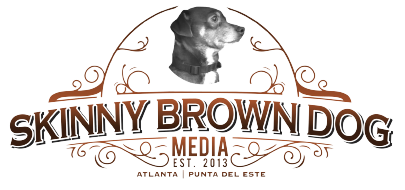In today’s digital age, having an author website is not an absolute requirement before publishing a book, but it is certainly recommended. Your author website serves as a home base for your online presence, helping you engage with readers, promote your work, and even build a mailing list for future projects. The good news? Setting up an effective website doesn’t have to take weeks or require a hefty budget. With the right tools, you could have your site live in a couple of hours.
But before you dive into building, it’s important to know the core elements every author website needs to have. Here are the four essentials your author website should include to start strong.
1. Opt-In Offer: Building Your Mailing List
An opt-in offer is the lifeblood of your author website. It’s one of the simplest yet most powerful tools you can use to grow your audience. By offering a freebie in exchange for someone’s email address, you can start building a loyal readership before your first book even hits the shelves.
For your opt-in offer, think about what would attract your ideal reader. It could be a free short story, a sneak peek at your upcoming novel, or a downloadable resource related to your genre. Once you’ve crafted this offer, place it prominently on your homepage. You can also position it in other areas, such as the sidebar, navigation bar, or as a pop-up within your blog posts. The goal is to make it easy for visitors to see the value in subscribing to your email list.
If you’re unsure where to start, a simple landing page with an email sign-up form is all you need. Remember, your mailing list will be a crucial tool for book launches, promotions, and staying in touch with your readers.
2. Bio: Connecting with Your Audience
Your readers want to know who you are—and a clear, engaging bio helps them connect with you on a deeper level. You don’t need to write a lengthy autobiography. A simple “About Me” page that explains what kind of books you write and a few relevant details will do the trick. Aim for 2-4 sentences that capture your personality and give potential readers a reason to follow your work.
On your homepage, it’s a good idea to give a brief introduction as well. Something like “Jane Doe – Cozy Mystery Author” immediately tells visitors what kind of books to expect from you. If you’re just starting out and haven’t published yet, that’s okay. Focus on what you’re working on and why your future readers will love it.
3. Contact: Making It Easy for Readers to Reach You
Having a clear way for people to contact you is another crucial element of your author website. Whether it’s an email address, a contact form, or links to your social media profiles, make sure your audience knows how to get in touch. This could lead to exciting opportunities—whether it’s from readers, other authors, or even media outlets interested in featuring you.
A simple “Contact” page is typically all you need. If you’re comfortable, you can also include links to your social media accounts to make it even easier for readers to connect with you across platforms. However, don’t feel pressured to be everywhere. Focus on the platforms where you feel comfortable engaging with your audience.
4. Books: Showcasing Your Work
Of course, your website should include links to your books. If you have published works, make sure visitors can easily find them, with direct links to purchase. Each book should have its own dedicated page with a description, cover image, and buying options.
If you’re still in the process of writing your first book, don’t worry. You can create a placeholder page where you tease your upcoming project. Include a brief description or teaser and an invitation for visitors to sign up for email notifications about its release. This helps build anticipation and keeps potential readers engaged.
Optional Additions: Enhancing Your Website
While the essentials listed above are enough to get your author website off the ground, there are several optional features that can enhance your site as you grow:
- Media Page: If you’ve done podcast appearances, interviews, or any other media, create a dedicated page where people can explore that content.
- Blog: Writing articles or blog posts can be a great way to share your thoughts, offer advice, or provide updates about your writing journey.
- Speaker Page: If you do public speaking, adding a speaker page is a good way to let people know you’re available for engagements.
- Photos & Logos: Some authors choose to include professional photos or a logo for branding purposes. However, if you prefer to remain anonymous, this step is entirely optional.
Start Simple, Grow Over Time
The key to building your author website is to start simple. You don’t need to have every feature perfectly in place from day one. The “essential four”—an opt-in offer, a bio, a contact page, and book information—will provide a strong foundation for your online presence. Over time, you can build out additional content as your author career grows.
And remember, you don’t need to spend weeks or thousands of dollars creating your site. With the right tools, you can have an effective author website up and running in as little as an afternoon. Takeaway: Your author website doesn’t have to be complicated or expensive. Focus on the essentials—opt-in offer, bio, contact info, and books—and you’ll have everything you need to connect with readers and build your author brand.




